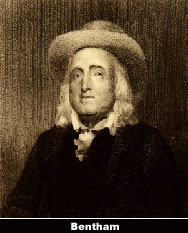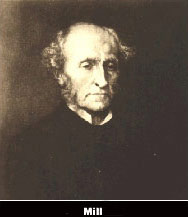|
|

 |
 |
 |
 |

 |
 |
The French author Michel
Onfray may be the philosopher who best represents the hedonist
tradition today. In his many works, Onfray attempts to reposition
the human body at the centre of our world view. Few if any
of his books are readily available in English. But their
evocative titles, with references to such things as “the
philosopher’s belly” and “the art
of enjoyment (or orgasm)” suggest the kinds of
topics that interest him.
Onfray specializes in a certain ancient philosophy that has
been buried under 2000 years of Christianity. His mission is
to rehabilitate materialist and sensualist thinking and use
it to re-examine our relationship to the world. Approaching
philosophy as a reflection of each individual’s personal
experience, Onfray inquires into the capabilities of the body
and its senses and calls on us to celebrate them through music,
painting, and fine cuisine.
Far from advocating the easy pleasures of consumption, Onfray’s
form of hedonism is a more tragic philosophy. It is ultimately
much closer to asceticism than to debauchery, and just as compatible
with the ideals of the Left as with those of Nietzsche.
|
|
|
| THE PHILOSOPHIES
OF PLEASURE |
|
The philosophies that regard the seeking
of pleasure and the avoidance of pain as the truest guides
to human behaviour have a long tradition.
Aristippus of Cyrene (435 to 366 B.C.), the
founder of the Cyrenaic school of philosophy, was among the forerunners
of those philosophers who ranked pleasure highest on their scale
of values. But he also believed in the need to exercise good judgment
to temper human passions.
Next came Epicurus,
who placed particular stress on the material, sensual aspect of
human pleasures, but without encouraging excess or disorder of
the senses. On the contrary, epicureanism argued the need to choose
prudently among our desires so as to achieve a state of authentic
equilibrium and repose–what the ancient Greeks called ataraxia
and what we now call happiness.
The Middle Ages were a difficult time for
hedonist philosophies. But once the Renaissance began, humanist
philosophers such as Erasmus (1466-1536) tried to show that the
search for pleasure could be compatible with God’s desire
for people to be happy. Thomas More (1478-1535), like Erasmus,
defended hedonism on a religious basis, but went further, affirming
that our desire for pleasure and happiness motivates us to act
in a moral way.
 |
In the 18th
century, the subject of pleasure and happiness was explored
more systematically by philosophers such as Hume, Locke,
and Diderot. Their theories can be regarded as precursors
of utilitarianism.
Utilitarianism itself evolved from the individual moral philosophy
propounded by Jeremy Bentham in 1823 to
the social moral philosophy advanced by John Stuart
Mill in 1861. For these two thinkers, pleasure is
desirable in and of itself, because only that which can be
experienced directly has any value.
Thus, utilitarianism was originally
a moral philosophy whose ultimate goal was the well-being
of the individual. In the Introduction to the Principles
of Morals and Legislation, Bentham lists the types of
pleasures, including the pleasures of the senses, the abilities,
friendship, memory, imagination, and so on. To Bentham, all
of these pleasures are accessible to all human beings, which
makes Bentham a more egalitarian utilitarian than Mill. |
| |
|
 |
In contrast,
Mill distinguishes a scale of pleasures, of which the most
refined are the ones to be most sought after. In Mill’s
view, humans are capable of achieving more refined pleasures
than those that Bentham identifies. For example, to Bentham,
the imagination is nothing more than memories or anticipation
of happy events, whereas Mill sees poetry, for example, as
a more refined pleasure. And Mill clearly believes that improving
our ability to attain the more refined pleasures would enhance
the overall welfare of humankind.
Utilitarianism holds that when faced with several alternatives,
we must choose the one that provides the greatest happiness
to the greatest number of people. Thus, utilitarianism offers
a pragmatic form of ethics. It seeks to weigh individual
pleasures against individual pains, thereby deducing what
would provide the greatest happiness for the greatest number,
and then to apply this criterion to establish fair laws and
policies for the community as a whole.
|
Utilitarianism bases its principles of the
quest for happiness not on an ideal standard, as Plato or Kant
did, but rather on a real standard, derived from observation and
experience. In his book Utilitarianism, Mill also shows
the ways in which his approach differs both from the sensualist
morality of Locke and Bentham and from the rigorous ethics of Kant.
For Mill, the ultimate source of justice lies not in what is useful
to one person in particular, but rather in what is useful to the
greatest number of people.
|
|






